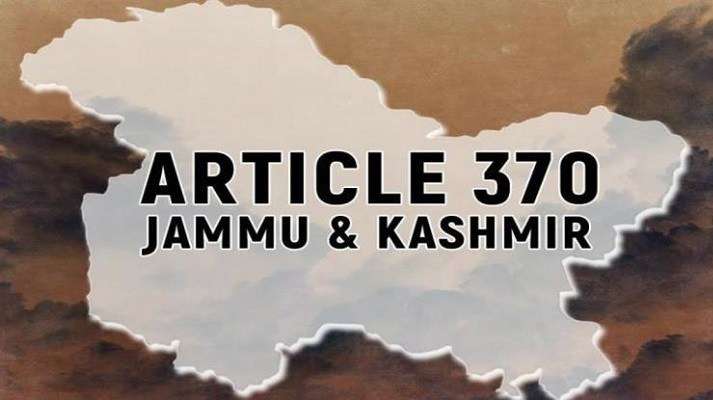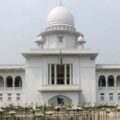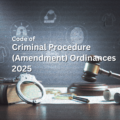Jammu and Kashmir has been the site of a protracted struggle among Indian armed personnel and Kashmiri people since 1990s. On 5 August 2019, the government of India made a significant decision by abrogating Article 370 of the Indian Constitution, which resulted in the revocation of the special status of Jammu and Kashmir. This move, although constitutionally contentious, has ignited a heated discussion about its implications on the human rights of Kashmiris. Following this decision there have been multiple reports from human rights organisations, international bodies, and local activists expressing serious concerns about violations of fundamental rights in the region. This article is the legal appraisal of the human rights violations in Kashmir after the abrogation of Art. 370.
The Government of India claims that the implementation of the repeal of Art. 370 will contribute to the stabilisation of the situation by facilitating the complete integration of the area into India. However, experts from the United Nations Human Rights Council have raised concerns about the possibility of discriminatory practices in the area with regards to human rights violations. The Valley’s internet was shut down for security reasons or precautionary measures, leading to job losses. The Supreme Court of India has interpreted the Indian constitution as safeguarding the freedom to participate in online trade or speech and expression without restrictions. The Apex Court rulings in Anuradha Bhasin (January 10, 2020) and Foundation of Media Professionals (May 11, 2020) on freedom of speech, media freedoms, and religious expression are laudable. These cases solidified the constitutional protection of freedom of speech and expression, as well as the right to engage in any profession or trade, business, or occupation over the internet, as outlined in Article 19(1)(a) and Article 19(1)(g) of the Constitution. The court also ruled that the indefinite suspension of internet services is not allowed under the Temporary Suspension of Telecom Services (Public Emergency or Public Service) Rules, 2017, and should be in line with the principle of proportionality. It was held that judicial review is applicable to any order that suspends internet under the Suspension Rules. However, it took the government almost a year to restore internet connectivity in the region.
Arbitrary arrest and detention are widespread in the region, with regional law enforcement seldom investigating security or military apprehensions. Indian law requires prisoners to appear before a magistrate within 24 hours, but this mandate was seldom met. The Ministry of Home Affairs repeatedly assured the public about the improvement of the law-and-order situation. However, since August 2019, around 4,000 Jammu and Kashmiris have been detained without charges or a proper trial. The UNHCHR has pressed India to stop violating human rights in Kashmir in a 43-page report, highlighting the violation of Article 3 of the Universal Declaration of Human Rights (UDHR) and Article 5 of the UDHR. India ratified the International Covenant on Civil and Political Rights (ICCPR) in 1979. However, several provisions of the Jammu and Kashmir Public Safety Act (JKPSA) contradict it. The JKPSA allows for preventive detention without the trial for two years raising concerns about personal liberty. It arbitrarily detains the individuals without giving the detainees any opportunity in obtaining a fair trial violating Art. 10 of UDHR. As well as it restricts the detainees from challenging the detention orders potentially encroaching upon Art. 13 of UDHR. Additionally, this Act permits the detention on ambiguous grounds, potentially infringing upon the principles of natural justice. The Act has majorly been used to detain the individuals expressing dissent. The provisions of JKPSA detaining the individuals on the basis of ‘Public Order’ and ‘Security of the State’ seem overly broad and lack clarity. The Act places limitations on the court’s power to review detention orders which again raises serious questions about the independence of judiciary in the country.
Between August 5, 2019 and July 9, 2022, the region of J&K had a total of 118 civilian fatalities, with 5 individuals identified as Kashmiri Pandits, while 16 belonged to other Hindu and Sikh groups. This data underscores the unfortunate reality that civilians have been subjected to violence irrespective of their religious affiliations. This is again in violation of Rome Statute of International Criminal Court and UN Code of Conduct for Law Enforcement Official. Ironically, India has not yet signed the ‘Rome Statute’.
According to statistics given in Parliament on July 20, 2022, by the Ministry of Home Affairs, the UT has experienced deaths resulting from terror attacks on a monthly basis since August 5, 2019. In 2019, the “Jammu and Kashmir Coalition of Civil Society” (JKCCS) and the “Association of Parents of Disappeared Persons” (APDP) found that the Indian army mistreated Kashmiri civilians. These abuses harmed children, women, the elderly, students, political activists, and journalists. The report compiled by former United Nations (UN) special rapporteur Juan E Mendez, stated that there has been violation of international human rights law in Jammu and Kashmir by practicing torture against civilians, destroying property such as homes, and causing widespread psychological distress.
The apparent surge in Google searches for ‘How to Marry a Kashmiri Woman’ following the repeal of Art. 370 raises concern about the perception of integration. Some people are expressing enthusiasm over the removal of Article 370, which has opened up opportunities for them to marry Kashmiri girls. Such people mention that it is their opportunity to purchase land in Kashmir and marry a Kashmiri girl without any complications. On the other hand, Nivedita Menon, a feminist academic, presented a different perspective, suggesting that these actions were declarations of dominance and exploitation, revealing a form of Indian colonialism driven by imagination and longing for both women and land. Instead of displaying a sincere curiosity in cultural exchange or social integration, it appears as objectification and misogynist fetishization of Kashmiri women’s bodies.
Journalists have also faced harassment after Article 370 was abolished, with communication blockages and bans on leaving home making reporting practically impossible. Reporter Masrat Zahra was prosecuted with UAPA infractions for uploading ‘anti-national’ stuff, and twelve journalists were physically attacked and 18 were arrested for interrogation. Since August 2019, 35 Kashmiri journalists have faced police searches, break-ins, terrorizations, physical assault, restrictions on their mobility, or fake criminal accusations. Travel bans were also introduced, breaching the people’s right to free movement as enshrined in the Constitution of India. Over 450 people were placed on a temporary ‘No Fly List’ without any court order in October 2019, just before Jammu and Kashmir was divided into UTs. These restrictions have had a substantial negative impact on the lives of those affected, as they violate their right to freedom of movement, prevent people from taking advantage of international opportunities for education or employment, and harm their mental health.
On December 11, 2023, a constitutional bench, led by Chief Justice D Y Chandrachud, made a ruling in favour of upholding C.O. 272 and C.O. 273. These orders, dated August 05 and 06, 2019, brought amendments to Article 367 of the Constitution and revoked Articles 370 and 35A of the Indian Constitution, respectively. In a separate ruling during the hearing of ‘In Re: Article 370 Of the Constitution’, Justice Sanjay Kaul called for an impartial investigation into human rights abuses in Jammu and Kashmir since the 1980s and recommended the establishment of a ‘Truth and Reconciliation Committee’ to report on violations by state and non-state actors.
It is evident that the discouragement of the right of self-determination in Kashmir is an explicit infraction of Jus Cogens and Erga Omnes obligations, aimed at suppressing the voices of the people. The arbitrary operation of preventive detention laws such as JKPSA and NSA, 1980 grants enormous authority to the armed forces, enabling them to carry out extrajudicial killings of innocent Kashmiri people. Holding people captive does not enhance human rights and is prohibited under Indian law in addition to the Geneva Conventions. The government should ensure an independent and impartial institution promptly to thoroughly investigate all the prima facie claims of serious human rights violations. A comprehensive commission should be organized to defend detainees in Jammu and Kashmir. After Article 370 is abrogated, the statehood demands of Jammu and Kashmir should be taken under consideration and free elections should be held there. Kashmir’s journey beyond Article 370 presents an opportunity to India to reaffirm its commitment to its democratic values as enshrined in the Constitution of India.
References
- Press Information Bureau Government of India Ministry of Home Affairs, ‘Government Brings Resolution to Repeal Article 370 of the Constitution’ (PIB Delhi, 5 August 2019). https://pib.gov.in/newsite/PrintRelease.aspx?relid=192487. Accessed 5 March 2024.
- OHCHR, ‘India: UN Experts Say Jammu and Kashmir Changes Risk Undermining Minorities’ Rights’ (United Nations Human Rights Office of the High Commissioner, 18 February 2021). Accessed 5 March 2024.
- ‘India Revokes Kashmir’s Special Status’ (Al Jazeera, 4 September 2019). https://www.aljazeera.com/news/2019/9/4/india-revokes-kashmirs-special-status. Accessed 5 March 2024.
- Isha Khurana, ‘A Never-Ending Struggle: Violation of Human Rights in Jammu and Kashmir’ (2021) 4(4) International Journal of Law Management and Humanities 3343.
- Irfan Amin Malik, ‘A Year Without High-Speed Internet Has Been a Nightmare For J&K’s Entrepreneurs’ (The Wire, 2020). https://thewire.in/business/jammu-and-kashmir-high-speed-internet. Accessed 3 May 2024.
- Akash Jaini and Bhaskar Dhandharia, ‘The Legality of Arbitrary Internet Shutdowns in India’ (London School of Economics Human Rights Blog, 2022). https://blogs.lse.ac.uk/humanrights/2022/03/25/the-legality-of-arbitrary-internet-shutdowns-in-india/. Accessed 3 May 2024.
- Jai Brunner and Kruthika R, ‘COVID & 4G Restoration in Jammu & Kashmir’ (Supreme Court Observer, 2020). https://www.scobserver.in/journal/covid-4g-restoration-in-jammu-kashmir/. Accessed 3 May 2024.
- Maya Rose Martin, ‘Arbitrary Detention in Jammu and Kashmir’ (American University Washington College of Law). https://www.wcl.american.edu/impact/initiatives-programs/center/documents/hrbrief-vol-23-columns-martin/. Accessed 3 May 2024.
- The Criminal Procedure Code 1973; The Bharatiya Nagarik Suraksha Sanhita (BNSS) 2023; In Re: Article 370 of the Constitution, Writ Petition (Civil) No. 1099 of 2019 decided on 11 December 2023 (Supreme Court of India). https://main.sci.gov.in/pdf/LU/article_370.pdf. Accessed 3 May 2024.
- ‘India Events of 2020: Jammu and Kashmir’ (Human Rights Watch, 2020). https://www.hrw.org/world-report/2021/country-chapters/india#0b5853. Accessed 3 May 2024.
- Ayush Verma and Pratik Kumar, ‘Jammu and Kashmir Public Safety Act, 1978: India’s Use of Preventive Detention Violates Human Rights’ (Oxford Human Rights Hub, 2020). https://ohrh.law.ox.ac.uk/jammu-and-kashmir-public-safety-act-1978-indias-use-of-preventive-detention-violates-human-rights/. Accessed 3 May 2024.
- Government Of Indiaministry of Home Affairs, ‘Rajya Sabha Unstarred Question No. 386
- To Be Answered on the 20th July, 2022/ Ashadha 29, 1944 (Saka) Attacks in Jammu and Kashmir And Migration of Kashmiri Pandits’ (Government of India, Ministry of Home Affairs, 2022). https://www.mha.gov.in/MHA1/Par2017/pdfs/par2022-pdfs/RS20072022/386.pdf. Accessed 3 May 2024; The Hindu Bureau, ‘Parliament proceedings | No Kashmiri Pandit left Valley after August 2019: Centre’ (The Hindu, 2022). https://www.thehindu.com/news/national/parliament-proceedings-118-civilians-killed-since-august-2019-in-jk-21-of-them-hindus/article65661760.ece. Accessed 3 May 2024.
- Rita F. Mukand, ‘Civilians Killings in Kashmir -The Woe Continues’ (Kashmir Horizon, 2023). https://thekashmirhorizon.com/2023/03/11/civilians-killings-in-kashmir-the-woe-continues/. Accessed 3 May 2024.
- Kalpana Kannabiran and Others., ‘Interrogating the “Normal” in Kashmir’ (Indian Cultural Forum, 2020) https://indianculturalforum.in/2020/03/04/interrogating-the-normal-in-kashmir/. Accessed 3 May 2024.
- Atman Mehta, ‘New Report Cites 432 Torture Cases in Kashmir from 1990-2017, 70% Victims Civilians’ (IndiaSpend, 2019). https://www.indiaspend.com/new-report-cites-432-torture-cases-in-kashmir-70-victims-civilians/. Accessed 3 May 2024.
- Nileena MS, ‘Draconian, undemocratic and a human-rights violation: David Kaye, UN rights-expert, on Kashmir’ (The Caravan, 2019). https://caravanmagazine.in/government/david-kaye-kashmir-draconian-undemocratic-human-rights-violation. Accessed 3 May 2024.
- Zohra Batul, ‘Indian Apathy and Systemic Violence against Women in Kashmir’ (London School of Economic, Department of Gender Studies, 2020). https://blogs.lse.ac.uk/gender/2020/09/14/indian-apathy-and-systemic-violence-against-women-in-kashmir/. Accessed 3 May 2024.
- Devina Neogi, ‘Women’s Struggles in the Kashmir Militancy War’ (2022) 23(6) Journal of International Women’s Studies.
- Press Council of India, ‘Report on State of Media in Jammu & Kashmir’ (2022). https://www.presscouncil.nic.in/Pdf/ROTC19122022.pdf. Accessed 3 May 2024.
- ‘India: Kashmiri Journalist Held Under Abusive Laws’ (Human Rights Watch, 2022). https://www.hrw.org/news/2022/02/08/india-kashmiri-journalist-held-under-abusive-laws. Accessed 3 May 2024.
- ‘India: Authorities must end alarming rise of arbitrary travel bans on journalists and activists’ (Amnesty International, 2022). https://www.amnesty.org/en/latest/news/2022/10/india-authorities-must-end-alarming-rise-of-arbitrary-travel-bans-on-journalists-and-activists/#:~:text=%E2%80%9CThe%20Indian%20authorities%20must%20lift,freedom%20of%20expression%20and%20movement.%E2%80%9D. Accessed 3 May 2024.
- Amber Mastoi, ‘Human Rights Abuses in Kashmir—An Urgent Call for The International Community to Act’ (Human Rights Pulse, 2020). https://www.humanrightspulse.com/mastercontentblog/human-rights-abuses-in-kashmiran-urgent-call-for-the-international-community-to-act. Accessed 3 May 2024.
- Mohammad Zayaan, ‘The Jammu and Kashmir Public Safety: A Gross Violation of the ICCPR’ (Opinio Juris, 2021). https://opiniojuris.org/2021/08/30/the-jammu-and-kashmir-public-safety-a-gross-violation-of-the-iccpr/. Accessed 3 May 2024.
- Sanchita Kadam, ‘Why has India still not ratified UN Convention against torture?’ (Citizens for Justice and Peace, 2021). https://cjp.org.in/why-has-india-still-not-ratified-un-convention-against-torture/. Accessed 3 May 2024.
- ‘US says support India’s objectives on repealing Article 370, but concerned over situation in Kashmir’ (The Economic Times, 2019). https://economictimes.indiatimes.com/news/politics-and-nation/us-says-support-indias-objectives-on-repealing-article-370-but-concerned-over-situation-in-kashmir/articleshow/71699094.cms?from=mdr. Accessed 3 May 2024.
- Malik Qasim Mustafa, ‘US and Strategic Stability in South Asia’ (2016) 36(4) Strategic Studies 38.
- Dipanjan Roy Chaudhury, ‘Russian support to India on Kashmir is rooted in history’ (The Economic Times, 2020). https://economictimes.indiatimes.com/news/politics-and-nation/russian-support-to-india-on-kashmir-is-rooted-in-history/articleshow/73411150.cms?from=mdr. Accessed 3 May, 2024.
- Harsha Kakar, ‘Article 370 and Pakistan’ (The Statesman, 2021). https://www.thestatesman.com/opinion/article-370-pakistan-1502967037.html. Accessed 3 May 2024.


















